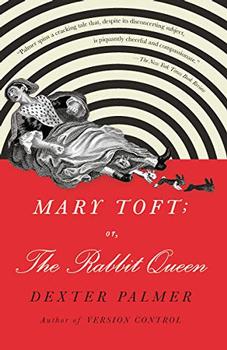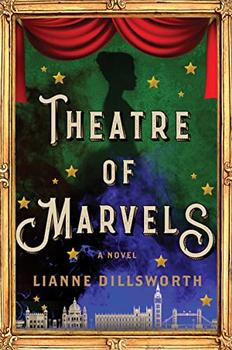Summary | Excerpt | Reviews | Beyond the book | Read-Alikes | Genres & Themes | Author Bio

In 1726, in the town of Godalming, England, a woman confounded the nation's medical community by giving birth to seventeen rabbits. This astonishing true story is the basis for Dexter Palmer's stunning, powerfully evocative new novel.
Surgeon's apprentice Zachary Walsh knows that his master, John Howard, prides himself on his rationality. But John cannot explain how or why Mary Toft, the wife of a local journeyman, has managed to give birth to a dead rabbit. When this singular event becomes a regular occurrence, John and Zachary realize that nothing in their experience as rural physicians has prepared them to deal with a situation like this—strange, troubling, and possibly miraculous. John contacts several of London's finest surgeons, three of whom soon arrive in Godalming to observe, argue, and perhaps use the case to cultivate their own fame.
When King George I learns of Mary's plight, she and her doctors are summoned to London, where Zachary experiences a world far removed from his small-town existence and is exposed to some of the darkest corners of the human soul. All the while Mary lies in bed, as doubts begin to blossom among her caretakers and a growing group of onlookers waits with impatience for another birth, another miracle.
There's an ornate quality to Palmer's use of language that reflects the formalities of the period. It also feels in keeping with the air of dark whimsy suited to a story fueled by the tradition of folktales. It's hard to believe events this provocative had been largely lost to time. By once again breathing life into Mary Toft's extraordinary story, Palmer gets to the heart of our enduring struggle to overcome the lies we tell each other — and the lies we tell ourselves — to appreciate our shared humanity...continued
Full Review
(594 words)
This review is available to non-members for a limited time. For full access,
become a member today.
(Reviewed by Callum McLaughlin).
 A taste for blood and an unfortunate willingness to exploit those considered "Other" are not wholly unique to the Georgian period, but their prevalence during the era cannot be ignored. By 1726, when the subject of Dexter Palmer's novel Mary Toft; or, the Rabbit Queen, claimed to have given birth to a rabbit, the concept of difference as a means of entertainment had been long established. To understand why her particular case was given so much credence, we must examine the wider social landscape that underpinned life at the time.
A taste for blood and an unfortunate willingness to exploit those considered "Other" are not wholly unique to the Georgian period, but their prevalence during the era cannot be ignored. By 1726, when the subject of Dexter Palmer's novel Mary Toft; or, the Rabbit Queen, claimed to have given birth to a rabbit, the concept of difference as a means of entertainment had been long established. To understand why her particular case was given so much credence, we must examine the wider social landscape that underpinned life at the time.
There was big money to be made from the spectacle of physical difference. With traveling sideshows and human curiosities regularly drawing huge crowds, people with deformities, disabilities and rare medical ...
This "beyond the book" feature is available to non-members for a limited time. Join today for full access.

If you liked Mary Toft; or, The Rabbit Queen, try these:

by Lianne Dillsworth
Published 2023
Set amid the bustle of Victorian London, an irresistible story of an ambitious young Black actress, an orphan from the slums who has finally achieved a dubious stardom as "The Great Amazonia, a savage African queen" - but everything she has fought for depends on hiding the secret of her own identity.

by Clare Beams
Published 2021
Sarah Waters meets Red Clocks in this searing novel, set at an all-girl school in 19th century Massachusetts, which probes the timeless question: who gets to control a woman's body and why.
Great literature cannot grow from a neglected or impoverished soil...
Click Here to find out who said this, as well as discovering other famous literary quotes!